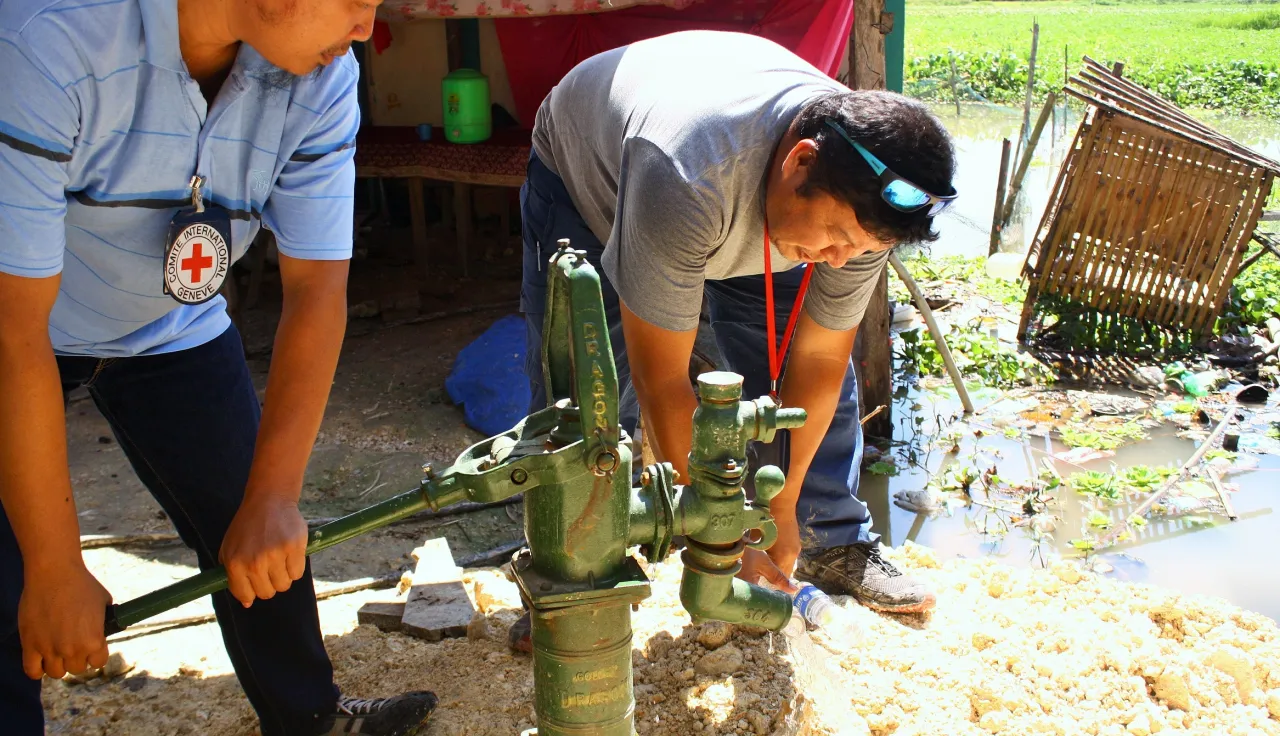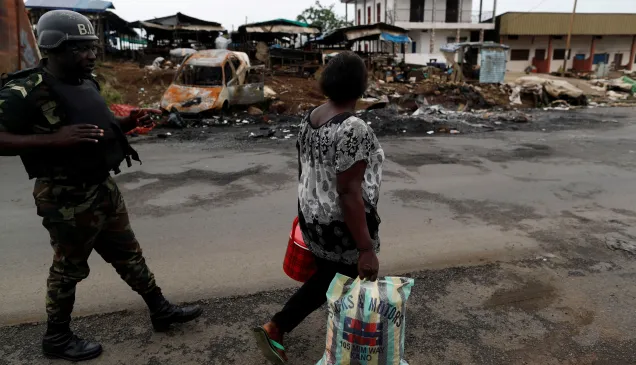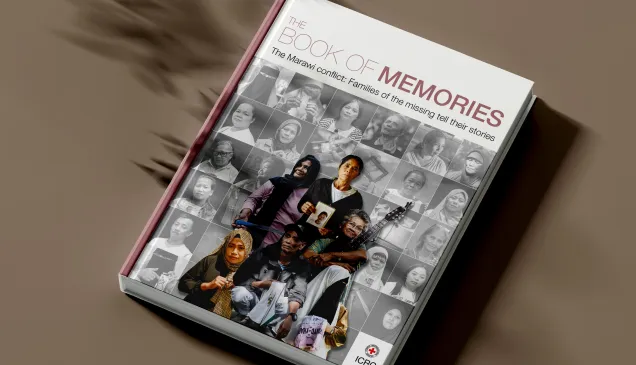Philippines: Making water readily available in conflict-prone areas

In the marshlands of Barangay Butilen, Datu Salibo municipality, Maguindanao, in southern Philippines, about 2,000 people are taking refuge due to renewed fighting between government forces and the Bangsamoro Islamic Freedom Fighters.
Finding access to water and sanitation, among other basic necessities, is often difficult for displaced people. But the displaced families in Butilen better cope with their situation, thanks to a project that anticipated their needs.
As part of its preparedness measures in areas prone to armed conflicts, the ICRC installed four hand pumps and 13 toilets in identified evacuation centers in Maguindanao including Barangay Butilen, late last year.
"This is an example of how planning and a good understanding of the local situation enabled the ICRC to implement projects that really benefit communities when armed clashes break out," explained Alessandro Giusti, who is in charge of ICRC's water, sanitation and shelter programs in the Philippines.
"Armed conflict and violence can happen anytime, and the needs of those affected are immediate. Projects such as these strengthen the capacity of communities in conflict-prone areas to respond to the needs of those displaced even before they can be reached by humanitarian organizations," he said.
The facilities, which were handed over to the barangay (village) also in December, are being used by over 2,000 people who fled to safety nearly two months ago. With the clashes still ongoing, they do not know when they will be able to go back home.
"These facilities really made a difference to us and especially to the displaced people," said Butilen barangay captain Faidza Sandigan. "Before, the evacuees had no choice but to use muddy water from the marsh for washing and bathing. With the hand pumps and toilets in the evacuation camps, the conditions are far better and cleaner."
The Datu Salibo water and sanitation project ensured that communities were able to cope with the recent influx of displaced persons. The ICRC constructed similar water and sanitation facilities in other barangays in Datu Salibo.
"Access to clean water is essential if we are to live with dignity no matter the situation," said Giusti.



